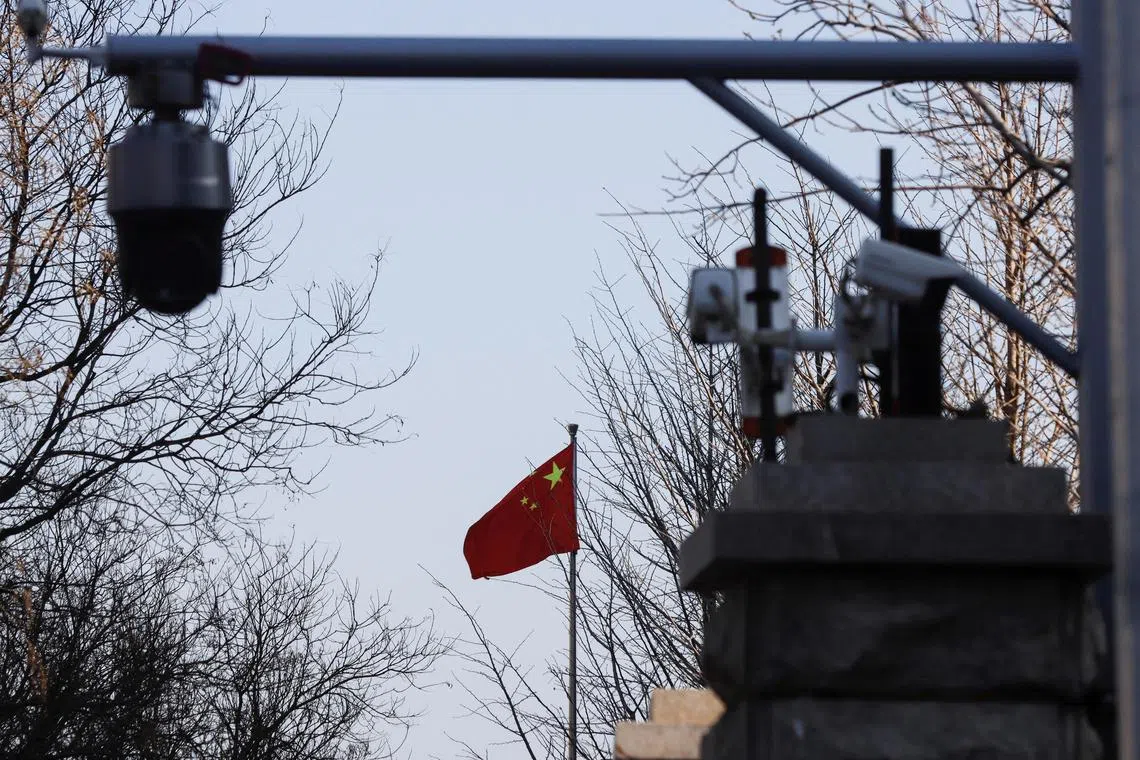China uncovers alleged CIA spy, a Chinese national recruited in Italy
Sign up now: Get ST's newsletters delivered to your inbox

China has been stepping up its oversight on what it deems espionage activities.
PHOTO: REUTERS
Follow topic:
BEIJING - China has uncovered an alleged spy for the United States Central Intelligence Agency (CIA), its state security ministry said on Friday, highlighting what it said were the risks and dangers of Chinese citizens being recruited abroad.
The Chinese national surnamed Zeng, who had worked for a military industrial group, was recruited by a CIA agent based in Italy, the ministry said in a statement posted on its WeChat channel.
Zeng was sent to Italy by the military industrial group for further studies and became acquainted with the CIA agent.
Through dinner parties, outings and trips to the opera, the two developed a “close” relationship, with Zeng gradually becoming “psychologically dependent” on the CIA agent, the ministry said.
After succeeding in “shaking” Zeng’s political stance, the CIA agent sought sensitive information about the Chinese military from Zeng, according to the statement. It did not say when the events took place.
The statement did not specify Zeng’s gender, but said the person was born in 1971 and the alleged CIA agent was named “Seth”.
Zeng was found to have signed an espionage agreement with the US and had received training before returning to China, the ministry said.
The alleged agent promised a huge amount of money and immigration to the US for Zeng’s family in return for the information, the ministry said.
After returning to China, Zeng had on numerous occasions provided “core” intelligence and had pocketed funds for the efforts, it said.
Coercive measures, which normally means detention, have been taken against Zeng, according to the statement.
US-Sino relations have soured in recent years over a range of issues including national security. Washington has accused Beijing of espionage and cyber attacks, a charge that China has rejected.
China has declared it is under threat from spies and has been stepping up its oversight on what it deems espionage activities.
Early in August, the state security ministry said the nation should encourage its citizens to join counter-espionage work, including creating channels for individuals to report suspicious activity as well as commending and rewarding them.
The ministry said a system that makes it “normal” for the masses to participate in counter-espionage must be established.
In July, China introduced an anti-espionage law
In June, the US warned of the new Chinese counter-espionage law, saying American and other foreign companies in the country could face penalties from the Chinese authorities for regular business activities. The US added that the law could compel companies’ locally employed Chinese nationals to assist in Chinese intelligence efforts.
It said the ambiguities of the law meant that “any documents, data, materials or items” could be deemed relevant to Chinese national security, also putting journalists, academics and researchers at risk.
The European Union ambassador to China, Mr Jorge Toledo Albinana, said in May he was not sure the opening up of the Chinese economy was compatible with the counter-espionage law. REUTERS

